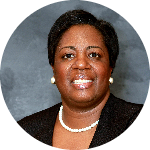Sociology Majors: Aiming for the Career Readiness Bullseye | Jan 2023
In the January 2018 Strada-Gallup Why Higher Ed report, 58% of respondents indicated that employment/career motivations are the main reasons for pursuing higher education.

In the January 2018 Strada-Gallup Why Higher Ed report, 58% of respondents indicated that employment/career motivations are the main reasons for pursuing higher education. These findings suggest that students are interested in earning a degree that can help them get a job. If students aspire to specific careers after graduation, then colleges and universities should be intentional about helping them develop and refine the skills they need to work in their chosen field. The National Association of Colleges and Employers (NACE) identifies these skills as career and self-development, communication, critical thinking, equity and inclusion, leadership, professionalism, teamwork, and technology. How does this career-ready information connect to the sociology major?
One way that this career-ready information connects to the sociology major is through the sociological imagination. According to C. Wright Mills (1959), the sociological imagination enables an individual to connect personal experiences to the society in which they live. In other words, the sociological imagination is the ability to evaluate personal experiences in light of social, cultural, and historical contexts. The sociological imagination encourages individuals to connect personal experiences to public issues that that are embedded in the structure of society. For example, the sociological imagination provides the platform for sociology majors to examine reasons why career readiness is more pronounced in their individual lives. What public issues influence the intentionality of sociology departments and faculty to help sociology majors develop and refine the skills they need for future careers?
An op-ed appearing in Inside Higher Ed focuses on the faculty’s role in students’ career readiness. The author encourages faculty members to be purposeful in their efforts in assisting students with the attainment of career-ready knowledge. In episode 44 of the podcast The Key from Inside Higher Ed, hosts discuss the topic of evaluating colleges and universities by their students’ career outcomes. As the career readiness topic became more prominent in media, I thought about how the sociology degree and the experience of pursuing a sociology degree prepare students for employment after graduation. Sociology provides analytical and critical-thinking tools necessary to see the world through structurally and culturally relevant lenses and to evaluate and offer solutions for an evolving society. For example, sociologists can use social theory, data analysis, statistics, and research methods to make evidence-based decisions about complex social challenges. These skills prepare sociology graduates for careers in industries such as business, education, government, research, the nonprofit sector, and healthcare.
What can you do to be career ready? The 21st Century Careers with an Undergraduate Degree in Sociology booklet provides the following suggestions:
- Get to know yourself and think about your career goals.
- If possible, engage in volunteerism, service-learning, internships, research projects, and other activities that allow opportunities for professional development.
- Get to know people who have careers in employment sectors that interest you.
- On a consistent basis, visit a career counselor in the Office of Career Services at your college or university and attend events hosted by the Office of Career Services.
- Enroll in a career development course if one is offered at your school.
- Become involved in student organizations.
You are on your way to being career-ready . . . enjoy the experience!
Discussion Questions
1. Why could it be important to connect sociology coursework with skills employers seek?
2. Do you think that colleges and universities should be held accountable for graduates’ career outcomes? Why or why not?
3. How do you think the sociological imagination can assist you with understanding the influence of career readiness in the lives of sociology majors?
4. Is there a sociology course that you are taking or have taken that connects to a career that interests you? If so, identify the course and explain how it is connected. If not, identify how one of your courses could be changed to connect to a career.
References
American Sociological Association. (2017). “The Sociology Major in the Changing Landscape of Higher Education: Curriculum, Careers, and Online Learning.” Washington, DC: American Sociological Association.
American Sociological Association. (2013). 21st Century Careers with an Undergraduate Degree in Sociology. 2nd ed. Washington, DC: American Sociological Association.
Chin, Jeff, Renee Monson, and Mary Senter. (2018). “Linking Sociology Programs to Students’ Career Readiness: Strategies from Practices.” Presented at the Annual Meeting of the American Sociological Association, August 12, 2018, Philadelphia.
Ciabattari, Teresa, Kathleen Lowney, Renee Monson, Mary Senter, and Jeff Chin. (2018). “Linking Sociology Majors to Labor Market Success.” Teaching Sociology 46(30): 191–207.
Gallup and Strada. (2018). “Why Higher Ed? Strada and Gallup Examine Consumers’ Top Motives for Choosing Their Educational Pathways Report.” https://news.gallup.com/reports/226457/why-higher-ed.aspx
Indeed Editorial Team. (2022, May 31). “29 Jobs for People with a Sociology Degree.” https://www.indeed.com/career-advice/finding-a-job/sociology-degree-jobs
Inside Higher Ed Podcast. (2021, April 14). Episode 44: Judging Colleges by Their Students’ Career Outcomes. https://www.insidehighered.com/audio/2021/04/14/ep-44-judging-colleges-their-students%E2%80%99-career-outcomes
Mills, C. Wright. (1959). Sociological Imagination. New York: Oxford University Press.
Senter, Mary S., and Roberta Spalta-Roth. (2016). “Individual Salary Is Not Enough: Measuring the Well-Being of Recent College Graduates in Sociology.” Washington, DC: American Sociological Association.
Senter, Mary S., Roberta Spalta-Roth, and Nicole Van Voreen. (2015). “Jobs, Careers, and Sociological Skills: The Early Employment Experiences of 2012 Sociology Majors.” Washington, DC: American Sociological Association.
The National Association of Colleges and Employers (2021, March). “Career Readiness Competencies for a Career-Ready Workforce.” https://www.naceweb.org/career-readiness/competencies/career-readiness-defined/
Toor, R. (2022, January 18). “Rethinking the Faculty Role in Students’ Career Readiness.” Inside Higher Ed. https://www.insidehighered.com/views/2022/01/18/faculty-should-do-more-help-students-prepare-careers-opinion




